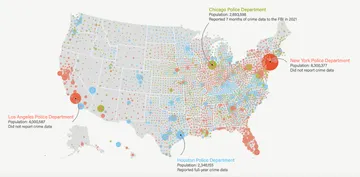President Obama on Wednesday commuted the sentences of 61 federal prisoners, bringing his total to 248. He has now granted more commutations than all seven of the most recent presidents combined — yet far fewer than the many thousands his administration once suggested were possible.
The announcement comes after months of criticism of the president’s record on pardons and amnesty. His “Clemency Project 2014,” once lauded as a historic effort to reduce the sentences of as many as 10,000 prisoners, has mostly been a bust. The project's overworked pro bono lawyers have struggled to process all the incoming applications and feed the best ones to the Department of Justice.
The president has been deemed “one of the most merciless presidents in history,” granting an “unpardonably” low number of pardons.
Yet with the 61 prisoners whose sentences he is now shortening, all but seven of whom will be released in July, Obama seems now to be aggressively using his executive authority to combat what his administration sees as the excesses of the War on Drugs era.
The new commutations were all granted to drug-related offenders, 39 of whom were users or dealers of crack. At least 51 are black, according to records kept by the Bureau of Prisons, which reverses a trend of presidential mercy going mainly to whites. And more than a third would have otherwise served life in prison, if not for Wednesday's announcement.
Significant disparities in federal sentences between people caught with cocaine and those with crack were narrowed under the 2010 Fair Sentencing Act, but the law wasn’t made retroactive. Obama's move appears to be an effort to rectify that.
Obama’s critics point out that the number of pardons he has granted — 70 — remains the lowest of any full-term president since John Adams. Advocates of a stronger push on clemency also remain disappointed with the president’s level of commutations, pointing out that compared to his administration’s original promises of 10,000 or more, 248 is a very low number.
The White House said Wednesday that the only true way to help thousands of low-level offenders serving decades in prison would be to pass sentencing-reform legislation currently stalled in Congress. “Clemency is nearly always a tool of last resort that can help specific individuals,” wrote White House counsel Neil Eggleston in a blog post on the new commutations, “but does nothing to make our criminal-justice system on the whole more fair and just.”
